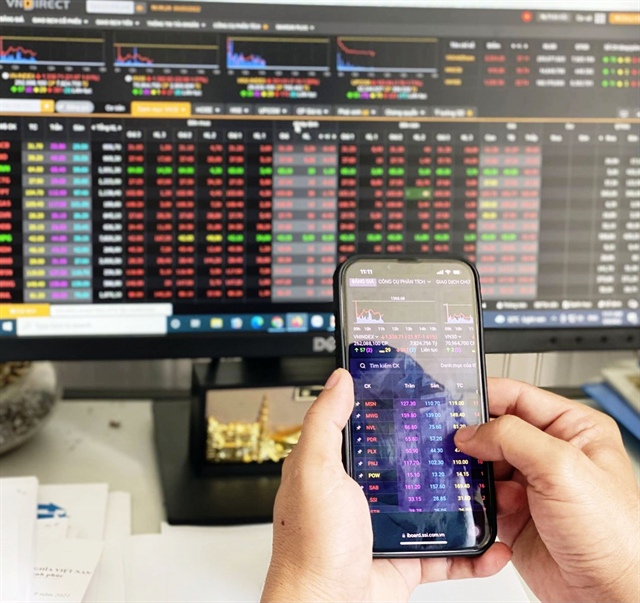|
Investors return to Vietnam’s stock market, proceed with caution
(VEN) - stemming from investor caution in the face of international political-economic instability. However, the market is expected to recover strongly and break previous records.

Developing a safe, transparent, effective and sustainable stock market is a must
|
Strong corrections
The Vietnamese stock market has experienced a remarkable downward trend since April. As of May 12, Vietnam’s benchmark VN-Index lost 285.86 points to close at 1,238.84 points, a decline of 18.7 percent compared to the peak set on April 4. Market liquidity decreased continuously during the reviewed period, with the average trading value reaching VND26.299 trillion per session in April and VND18.916 trillion per session in the beginning of May.
In addition to Vietnam, stock market indices everywhere have declined compared to the end of 2021, with the US falling 10.04 percent, Germany -11.25 percent, France -8.66 percent, China -16.28 percent, Hong Kong (China) -9.87 percent, the Republic of Korea -9.49 percent, and Japan -6.75 percent.
Michael Kokalari, chief economist of VinaCapital, pointed out a number of specific factors responsible for the VN-Index plunge. Kokalari said emerging and frontier stock markets will suffer from a 15 percent year-on-year surge in the value of the US dollar because a strong appreciation in the dollar typically dissuades investors from investing in emerging and frontier stock markets. Crackdowns on some non-transparent trading cases in the stock and corporate bond markets have also affected investor sentiments.
Selling pressure
The decline in the Vietnamese stock market has been consistent with global market developments, though selling pressure was exacerbated by many new retail investors dealing with margin calls for the first time, as well as a crackdown on firms that borrowed money to buy stocks. However, none of these developments are likely to have a major impact on Vietnam’s economic growth, or on the aggregate earnings of listed companies.
Vietnam’s benchmark VN-Index rose 2.84 percent to 1,268.43 points on May 25, demonstrating a positive direction for the Vietnamese stock market. Market liquidity has also increased, reflecting a return of investors.
Financial experts recommend that investors consider macroeconomic stability, growth potential and market valuation when the stock market is in deep corrections. If macroeconomic stability is maintained and market valuation is low, investors should take advantage of opportunities to buy stocks.
The Ministry of Finance is closely monitoring the developments of the global political-economic situation and assessing the influence on the Vietnamese stock market in order to promptly take appropriate action to stabilize the local market. In addition, the ministry is strengthening information dissemination and reviewing the system of guiding documents on stock trading, especially regulations on transparency of corporate information, rights and responsibilities of participants and sanctions for violations in order to restore investor trust.
VietNam Economic News
|